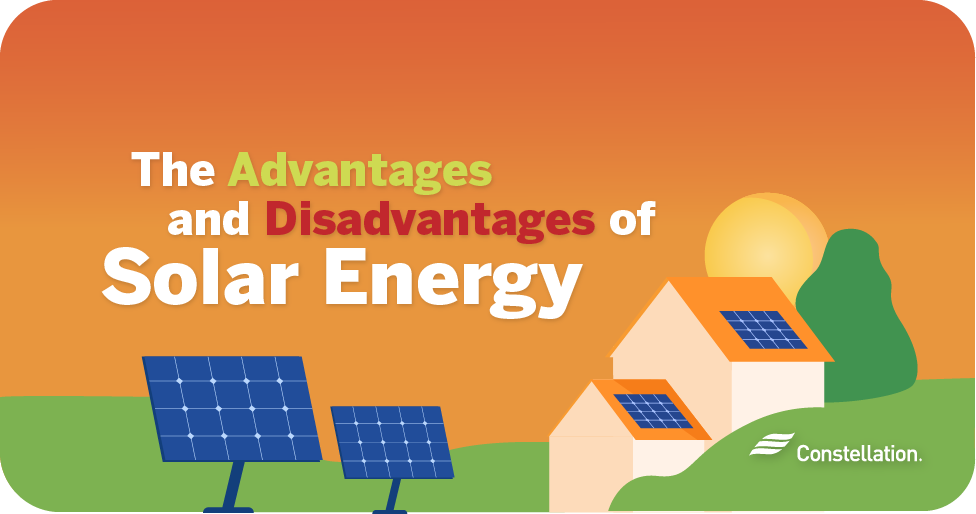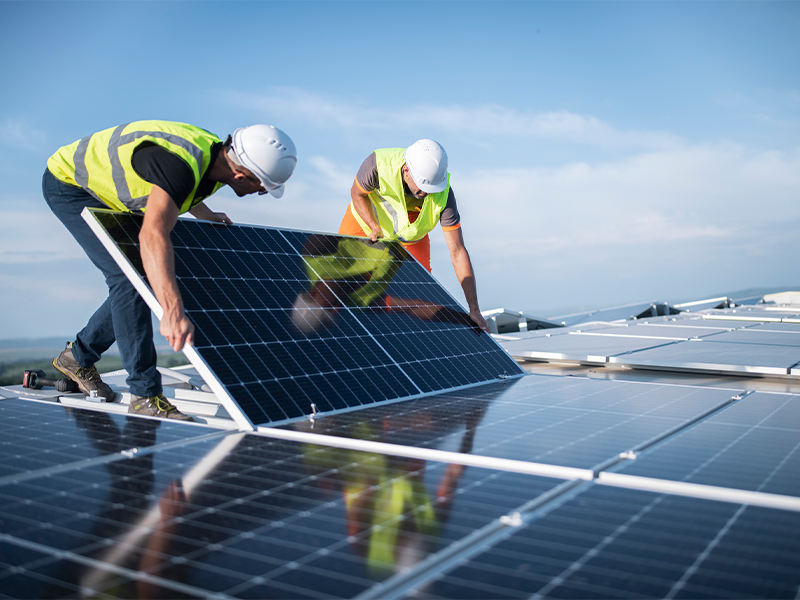How Simply Solar Illinois Helps Illinois Residents Switch to Solar Power
How Simply Solar Illinois Helps Illinois Residents Switch to Solar Power
Blog Article
Just How Solar Energy Can Help You Save Money and Decrease Your Carbon Footprint
The integration of solar power into your energy portfolio provides a compelling possibility for both economic cost savings and environmental stewardship. By taking advantage of the sunlight's power, homeowners can considerably reduce their monthly energy expenditures while additionally securing against the unpredictability of future energy prices. The transition to solar adds to a significant decrease in carbon exhausts, straightening personal finance with more comprehensive environmental goals. As various federal government rewards end up being available, the inquiry occurs: how can one efficiently browse the first financial investments and continuous advantages of solar innovation to take full advantage of both economic and ecological gains?
Understanding Solar Power Financial Savings
While the change to solar power typically entails an initial investment, comprehending solar energy cost savings is important for home owners and companies alike. Solar energy systems can considerably decrease electrical power bills by utilizing the sunlight's energy, converting into considerable long-term financial benefits. By producing their very own electrical power, individuals lessen dependence on grid power, which undergoes fluctuating costs. These financial savings can gather over time, typically causing a quick roi.
In addition, solar power systems may receive different monetary incentives, including tax credit scores and rebates, further improving their cost-effectiveness. The availability of net metering permits individuals to offer excess energy back to the grid, developing an added income stream. These elements add to the total cost savings associated with solar power.

In enhancement to route financial financial savings, solar power offers the added benefit of increasing residential property worth. Houses outfitted with photovoltaic panels are usually extra attractive to customers, as they assure reduced power prices - Simply Solar Illinois. Recognizing these aspects is necessary for anyone considering solar energy, as it highlights not simply the possible monetary gains, however also the broader ecological and financial benefits of embracing renewable resource remedies
First Prices vs. Long-Term Advantages
When reviewing solar energy, it is necessary to weigh the initial prices against the long-term advantages. The in advance investment for photovoltaic panels, setup, and related equipment can be significant, usually varying from $15,000 to $30,000, depending upon the system size and home power requirements. This first expenditure might prevent some property owners; nonetheless, it is vital to take into consideration the possible cost savings with time.
Once installed, solar energy systems can considerably decrease and even get rid of monthly power expenses, bring about considerable lasting monetary advantages. Studies suggest that homeowners can conserve anywhere from $10,000 to $30,000 over the life-span of their planetary system, generally 25 years. In addition, numerous states use incentives, tax credit scores, and rebates that can balance out first costs, making solar a lot more accessible.

Minimizing Your Carbon Footprint
Reducing your carbon impact is an important factor to consider in today's environmentally aware culture, and embracing solar energy is among one of the most efficient approaches to accomplish this objective. Solar energy is a tidy, renewable energy that significantly lessens reliance on fossil gas, which are major contributors to greenhouse gas exhausts.

Moreover, the widespread fostering of solar technology urges the development of environment-friendly tasks and sustains developments in power storage and performance. The more people and companies buy solar energy, the greater the cumulative reduction in carbon discharges, fostering a cleaner environment for future generations.
Federal Government Incentives and Discounts
Adopting solar power not just benefits the atmosphere yet can also cause significant monetary you could try these out cost savings, specifically with the availability of government motivations and rebates. Different government, state, and neighborhood programs are developed to motivate home owners and companies to spend in solar power systems, making the transition a lot more budget-friendly.
Among the most popular rewards is the Federal Financial Investment Tax Obligation Credit Report (ITC), which permits solar system owners to subtract a significant percent of the installation costs from their federal taxes. This reward has actually been crucial in reducing the upfront costs related to solar power systems. In addition, many states provide their own tax obligation debts, gives, and rebates that can even more improve cost savings.
Moreover, some neighborhood governments offer building tax exemptions for solar installations, guaranteeing that home owners do not face raised real estate tax as a result of their renewable resource investments. Energy companies may likewise provide rewards, consisting of web metering and feed-in tariffs, which permit solar power individuals to market excess power back to the grid.
Choosing the Right Planetary System
Selecting the appropriate planetary system is vital for taking full advantage of power efficiency and economic advantages. The choice hinges on a number of variables, including energy needs, spending plan, and readily available area. House owners should begin by examining their Related Site electrical energy consumption to establish the system size needed for ideal performance.
Next, take into consideration the different kinds of solar technologies available. Simply Solar Illinois. Solar (PV) panels are the most typical, converting sunshine straight right into electricity, while solar thermal systems concentrate on home heating water. Each type has distinct benefits relying on specific requirements
Spending plan considerations are likewise critical. Initial installation expenses can differ substantially, so it is essential to compare quotes from several companies and explore funding choices. Federal government incentives and refunds can additionally minimize the financial worry, making solar systems more accessible.
Final Thought
The ecological advantages of solar power contribute to lasting techniques crucial for combating environment adjustment. Federal government motivations improve special info the expediency of solar modern technology fostering, motivating a change towards a cleaner, a lot more financially reliable power resource.
Report this page